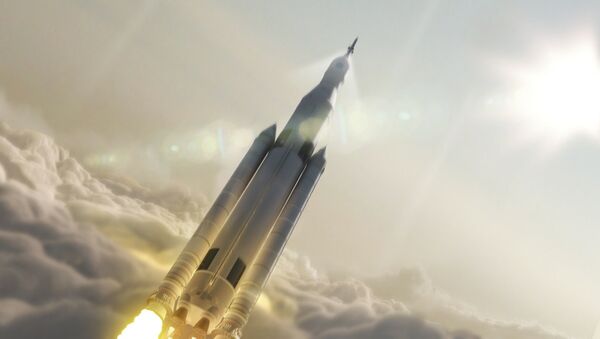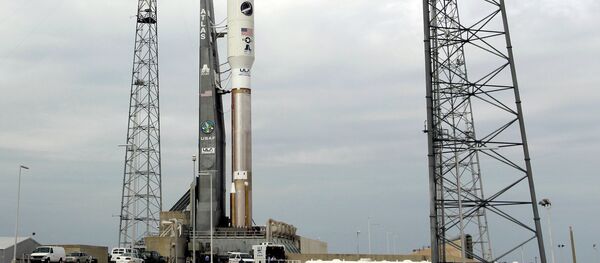Trump signed an order on Monday creating what would be the sixth branch of the US armed forces, saying space is a warfighting domain and referring to the new unit as the "Space Force."
An official with the Joint Chiefs of Staff issued a similar statement saying they will work closely with the Office of the Secretary of Defense, other Pentagon stakeholders and the Congress to implement the President’s guidance.
Space Force Will Serve Many Purposes
"This is a very interesting proposal, blurted out by Mr. Trump to a friendly audience of space researchers and contractors," former Pentagon analyst and retired US Air Force Lieutenant Colonel Karen Kwiatkowski said. "The proposal serves a great many purposes for the President."
"A new Space Force would indeed require cuts to all of the existing military branches as well as NASA and other government agencies, as a US peak military budget tolerable by the bankers and the population has likely already been reached," she said.
Tasking the Pentagon and its commercial agents, and their allied Congressmen and Senators with exploring and designing this executive project may be quite brilliant, Kwiatkowski suggested.
"Creating this ‘project’ allows Trump to hand the Pentagon a new and ‘tremendous’ problem, that will divert its energies from resisting the president’s agenda of trying to ending wars and reducing the global military footprint," she said.
These bodies will have to "justify their ‘unique’ roles, responsibilities and budget share, much of which is secret and not public… There is no better way to shine light of waste and duplicate missions than to walk through an exercise of splitting up a bureaucratic agency with no real promises of new funding," she said.
Space Force Proposal Requires Public Debate
The United States does not need a Space Force but does need some public discussion and debate of how over a trillion dollars a year is spent on defense, space and intelligence-related activities, Kwiatkowski insisted.
"Does Trump need to give the Pentagon a job other than fighting his agenda of defense of the physical US, as opposed to costly and risky military adventurism? Yes. Do some military officers and senior executives need to retire in protest over this latest Trump proposal? Yes," she said.
"I see this proposal as either a curious accident of Trump's enthusiasm (it could be no more than that) or a strategy that puts military branches in competition with each other, in a game Trump benefits from whether," she stated.
The upheavals generated by creating such a new Space Force would also reveal to Trump who his real allies were in the defense establishment and bureaucracy, Kwiatkowski predicted.
"Perhaps most importantly for the Executive Branch, to find out which figures in the military are with him, and which officers and executives he needs to retire in the next year or so.
US to Boost Massive Space Presence
American University in Moscow President Professor Edward Lozansky, a former nuclear physicist said he saw no problem in the United States setting up a new space force to run its already-massive space military activities.
"As far as I know the Russians have such force, so what is the problem with Americans having the same?" he asked.
"It will need a US Space Force Academy," Freeman said.
The US government may have been forced to undergone its own massive reform and restructuring by the time that the new space cadets – which is also US slang for incompetent and inexperienced personnel — graduate from their new academy, Freeman suggested.
A new Space Academy "will enable the US at long last to staff its government with space cadets, if it has a government," he concluded.
Trump had said the announcement on the Space Force has opened a new chapter in competition to explore space, with the goal of besting nations such as Russia and China.






